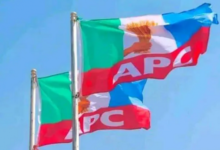World Bank, FG disagree on budget 2025 assumptions

The World Bank, yesterday, described the Budget 2025 key assumptions of 2.1 million barrels per day oil production and $73 per barrel price as ambitious given the current production level of 1.6mbpd and $60pb price at the international market.
The Federal Government however disagreed, saying that the assumptions were based on the potentials of the economy.
The World Bank in its May 2025 Nigeria Development Update presented yesterday in Abuja, noted that though most of all economic indicators remain positive, inflation remains high.
It pointed out that for Nigeria to achieve its target of a $1 trillion economy by 2030, the growth rate needs to be five times faster than its current rate of 3.8 percent.
Despite the challenges and the rising cost of living in the country, the bank urged the Federal Government to stay on course in the implementation of its economic reforms.
Presenting the report to a gathering that included the Ministers of Finance, Wale Edun, Budget and National Planning, Atiku Bagudu, Communication, Innovation and Digital Economy, Bosun Tijani, Governor of Central Bank of Nigeria, Yemi Cardoso, as well as the Governor of Plateau State, Caleb Mutfgang and private sector leaders, the Lead Economist at World Bank Country Office, Dr Alex Sienaet, commended the government for removing subsidies on petrol and liberalizing the foreign exchange market.
The World Bank reported that Nigeria’s fiscal outlook remains cautiously optimistic but hinges on the necessary consolidation of recent advances.
“Despite the subsidy being fully removed in October 2024, NNPCL started transferring the revenue gains to the Federation only in January 2025. Since then, it has been remitting only 50 percent of these gains, using the rest to offset past arrears.
“Resolving any remaining net arrears and channeling the full benefits of subsidy reform to the Federation is critical for sound fiscal management.
“Second, close monitoring of the 2025 budget implementation is essential, as it has overly ambitious revenue assumptions and may lead to a larger-than-anticipated fiscal deficit.
“The budget aims to boost capital spending, and this must be done sustainably, within the broader objective of fiscal consolidation to complement monetary policy and achieve an overall policy mix that maintains fiscal discipline and brings down inflation. “Third, sustained efforts to enhance expenditure efficiency and transparency are crucial to maximizing development outcomes.
“This responsibility lies not only with the Federal Government, but especially with states, which now receive more revenue (N13.8 trillion in 2024) than the Federal Government (N12.3 trillion)”, it added.
The bank observed that while the country’s economic growth has gradually picked up, the government must improve investment on Nigerian youths and infrastructures.
Strategy to accelerate growth.
Furthermore, the World Bank recommended a four points strategy to accelerate economic growth, create more and better jobs in Nigeria.
The Bank noted that such a strategy which must be private sector led and public sector driven is needed to achieve the $1trillion economy aspiration of the government.
It stated: “In order for the economy to meet the government’s aspiration of achieving a $1 trillion economy by 2030 and deliver poverty reduction and shared prosperity, the pace of growth needs to accelerate further and its composition rebalanced towards those economic sectors and firms that are most productive, generate positive spillovers, and create jobs and opportunities at scale, especially for the poor and economically insecure.
“At present, the best-performing sectors of the economy, like finance and ICT, are important drivers of growth but are not sources of mass employment as many Nigerians do not yet have the skills and opportunities to participate in them.
Highlighting the four points, the World Bank, said, “A private sector-led, public sector-facilitated growth strategy can boost inclusive growth. Key elements of this strategy include:
“Addressing major infrastructure gaps, such as in electricity and transportation;
“Fostering healthy competition, market openness, and improving the business environment to spur business dynamism;
“Improving access to finance for new and existing firms to grow and improve productivity; “Improving policies in key sectors to help unleash the potential of these sectors.”
Federal Government reacts.
Speaking at the event, the Minister of Finance and Coordinating Minister of the Economy, Wale Edun said the economy has moved from a period of crisis to a period of stability which needs to be sustained.
Edun pointed out that the government needs to push for transparency of fiscal data and transparency in the oil revenue sector, adding this is key to what the government is trying to achieve.
“In terms of where we go next, the key is investment. It is investments that allow increases in productivity that grows the economy and creates jobs”.
He said the government is conducting a forensic audit of the NNPC Limited, assuring that all monies due to the federation account from NNPC Limited would be recovered.
On his part, the Minister of Budget and Economic planning, Abubakar Atiku Bagudu, disagreed that the assumptions made in the 2025 budgets were over ambitious, pointing out that they were based on the country’s potential.
“Are the projections in the 2025 budget ambitious? No, they are not, in all modesty. This is because even in the presentation, two things were said: the oil price which is now $60 per barrel but the average for Nigeria is $73 because of our premium grades. And then 1.6 million barrels per day production, though disappointing but we have produced 2.2mbpd and the Ministry of Petroleum has said we have technical and physical capacity to produce these volumes in terms of acreages and technology”.
On his part, CBN Governor, Yemi Cardoso said the economy needs a period of sustained stability for it to grow, which is what the central bank has been doing.
According to him, “We recognize our role as the custodian of stability and we recognize what we have to do to ensure that we accomplish and attain stability. “We continue not just in attaining but we continue to protect. With that comes the need to be proactive to be able to understand risk and to be able to move before the risk overwhelms us”.
Cardoso noted that actions taken by the CBN has ensured that the volatility in the foreign exchange has moderated from about four percent a year ago to less than half percent.
States have more responsibility – Gov Mutfwang
In his defense of what state governments are doing with improved revenue from the federation account, Plateau State Governor, Mr. Caleb Mutfwang, argued that despite the increased revenue, purchasing power has also dropped.
He stated that the state governments have had to spend more to maintain security due to the high level of insecurity across the country.
“One of the key components of macro-economic policy that perhaps needed to be addressed in the NDU is the impact of insecurity on the macro economy because it is one of the critical factors that is diverting funds that we would have put into critical investments and infrastructures. We are having to spend a lot to deal with the challenges of insecurity”, he stated.





